Welcome to another episode of the Willoughby Hills podcast!
Sandra Goldmark is a theatrical set and costume designer, professor of sustainability at Barnard College, and the author of the book Fixation: How to Have Stuff Without Breaking the Planet.
The book, and our conversation on the podcast, explores why we like to own things, how product design made items more disposable, and how the next economic opportunity may be in repairing broken objects and selling used goods.
Sandra first came on to my radar when Ginger Zee (who I interviewed in the early days of the podcast) reported on a program at Barnard College where departing students donated unneeded dorm room supplies which were then cleaned and sold to incoming students in the fall. It was such a brilliant idea to prevent waste and save money. After seeing the story, I knew I wanted to learn more.
Sandra’s book draws on her work operating pop up repair shops throughout New York, where people could bring their broken appliances, household goods, and furniture and have them repaired by Sandra and her theatre colleagues for a small fee. The goal was to keep products out of landfills, but the experience taught Sandra about how many of our manufactured goods these days are not designed to be repaired. With small design tweaks, these items could be fixed, and the manufacturers could capture money for the repairs.
Sandra also discusses the immense economic opportunity in reuse. At the moment, most reuse involves donating items to thrift stores, where finding useful products is a bit of a wild goose chase. But Sandra imagines a time when stores like IKEA would sell brand new furniture alongside used items. She sees it not only as a smart economic opportunity but an urgent climate necessity too.
We had a really fascinating conversation about shifting our mindset away from consuming brand new and more towards reuse and secondhand. Sandra’s book is a great read and one that even my 10 year old daughter is enjoying right now! You can check out the book here.
If you enjoy this interview, you may also like my twice-weekly email newsletter about our changing relationship to home, work, building, shopping, eating, and more. Subscribe to have it delivered to your inbox, plus get notified when new podcast episodes are posted:
Related Episodes:
20. ABC Chief Meteorologist Ginger Zee (Quarantine Creatives)
94. Fat Moon Mushrooms Farmer Elizabeth Almeida (Quarantine Creatives)
Listening Tip:
You can stream this episode on the go using the Substack app.
You can also click “Listen On” in the player at the top of this post to load this episode on your favorite podcast app, or search “Willoughby Hills” in your favorite podcast app too.








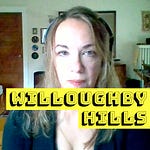


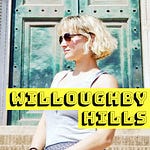
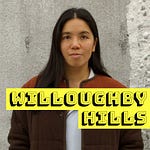

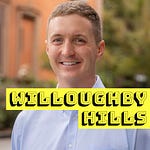
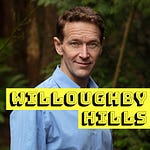
Share this post